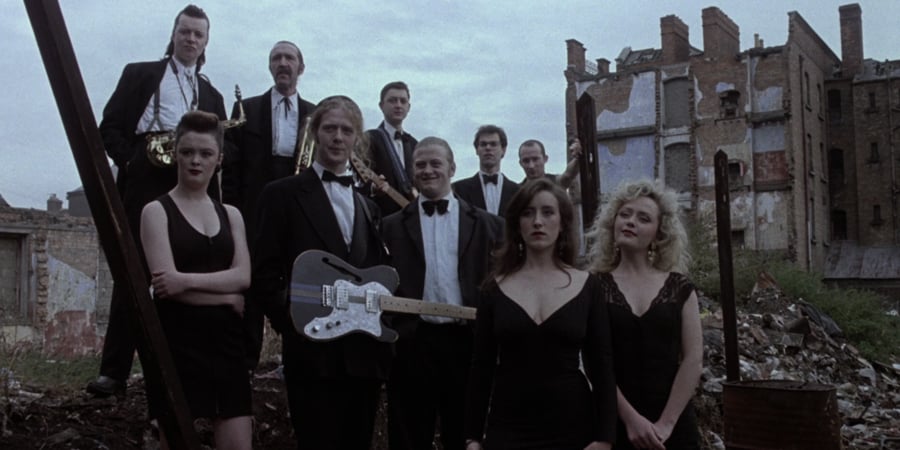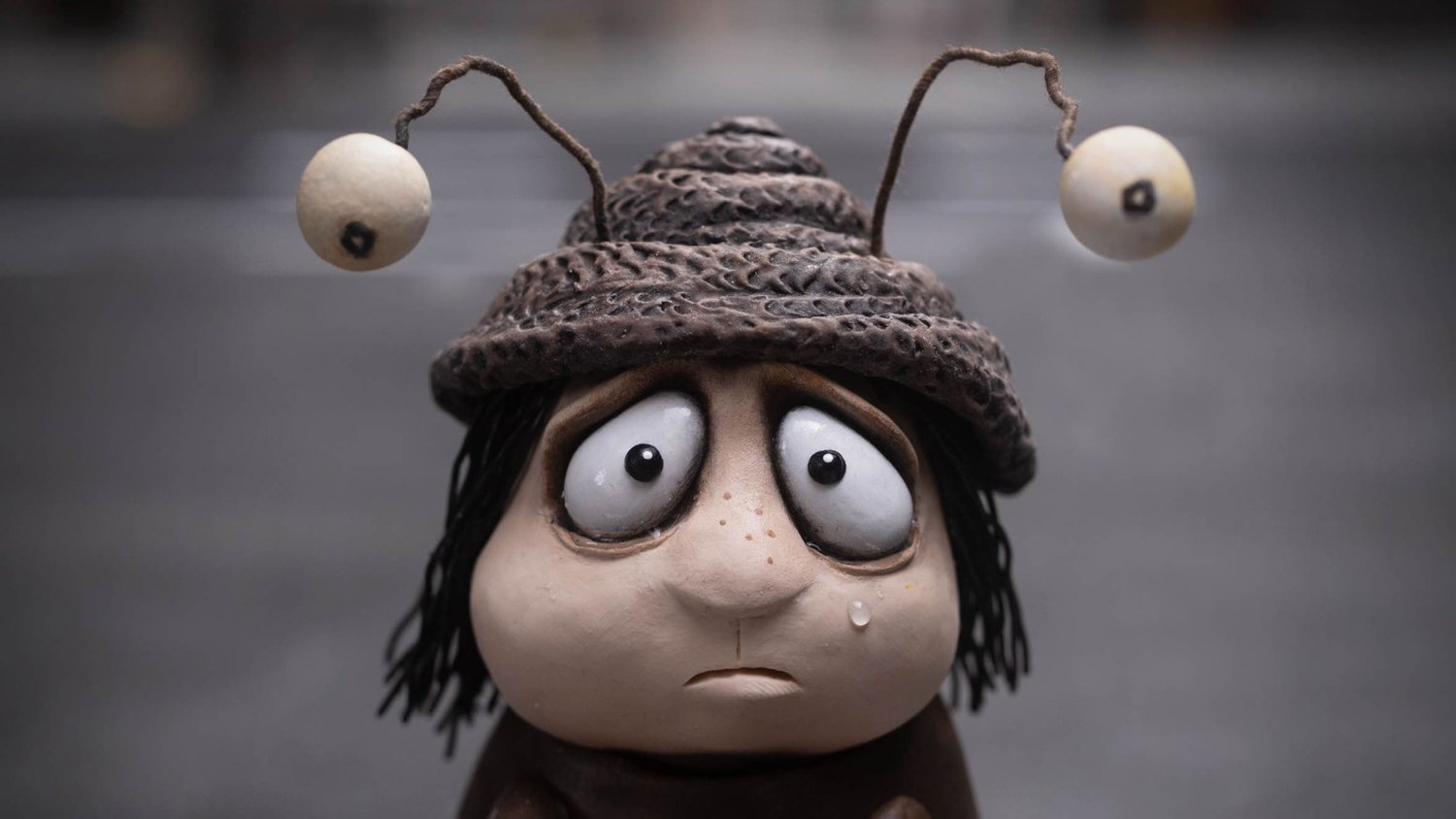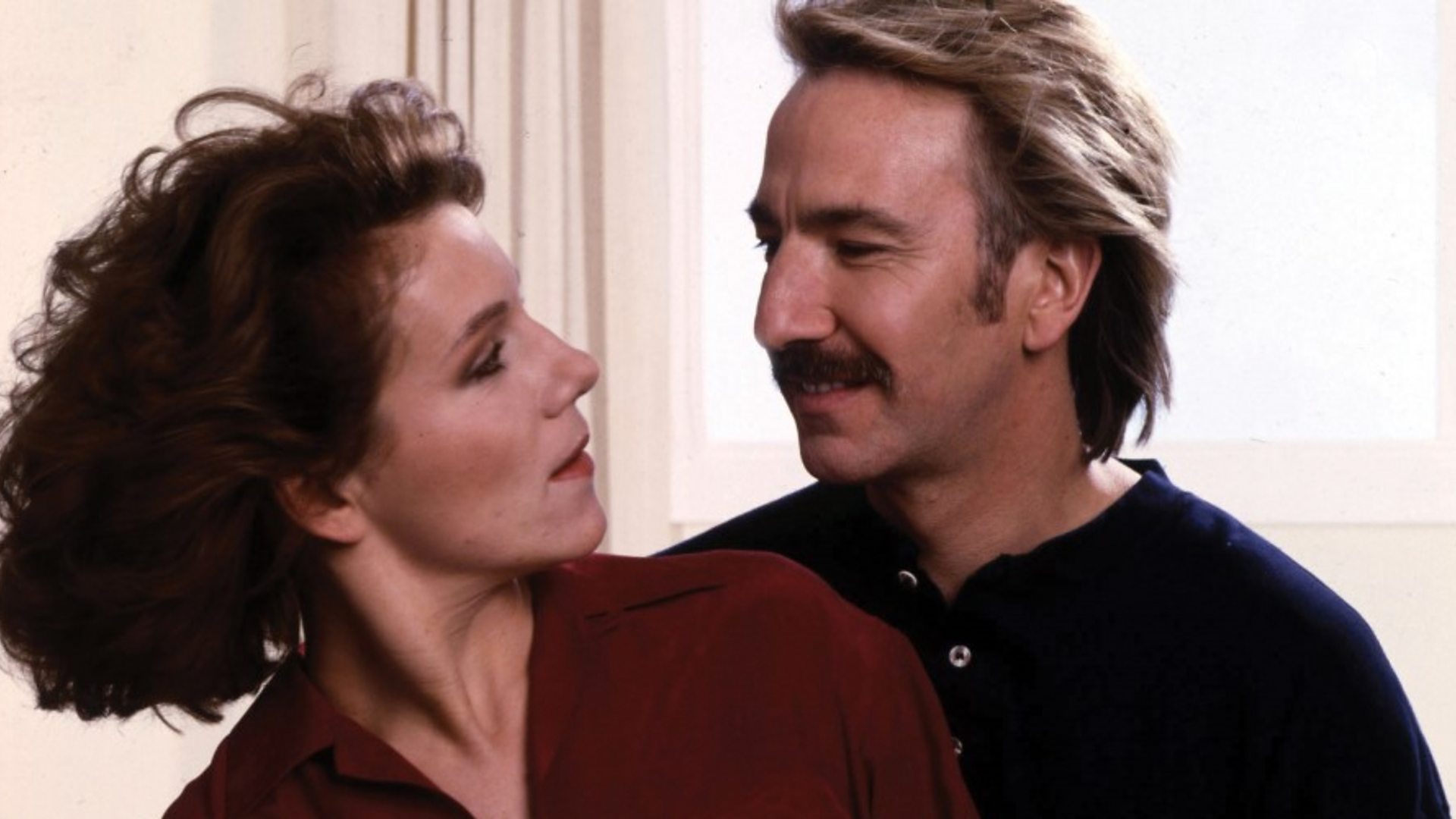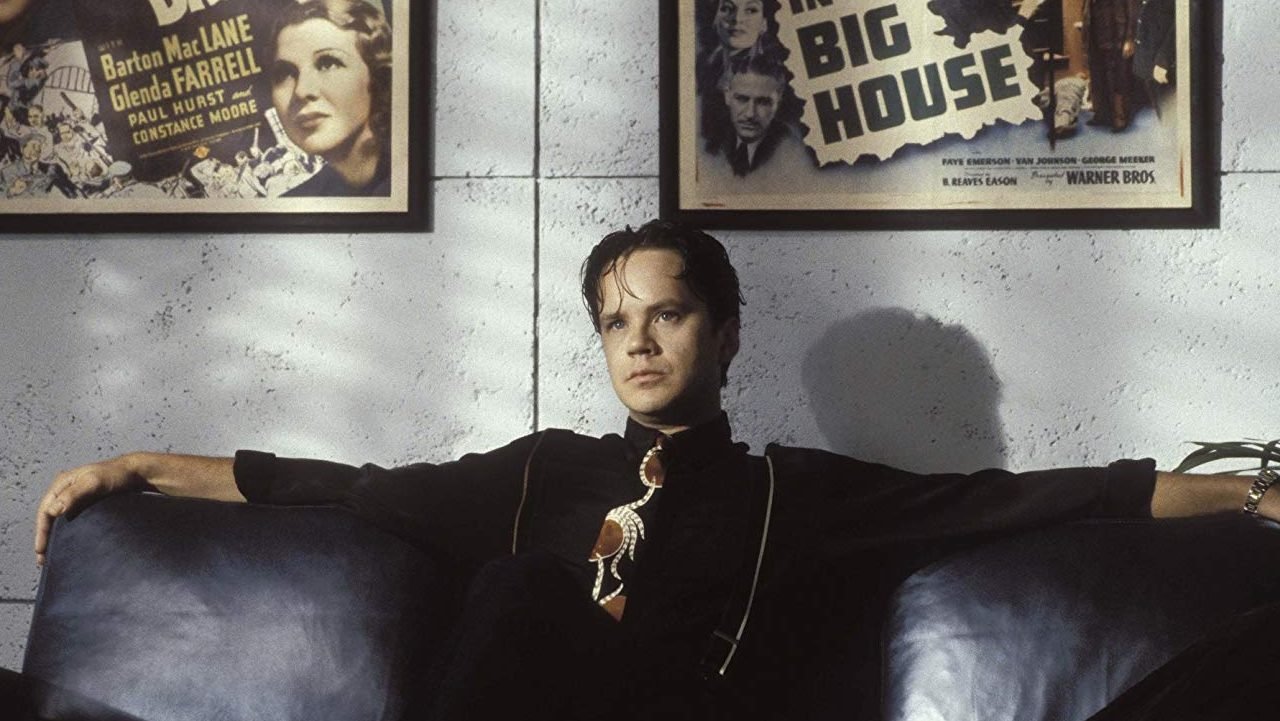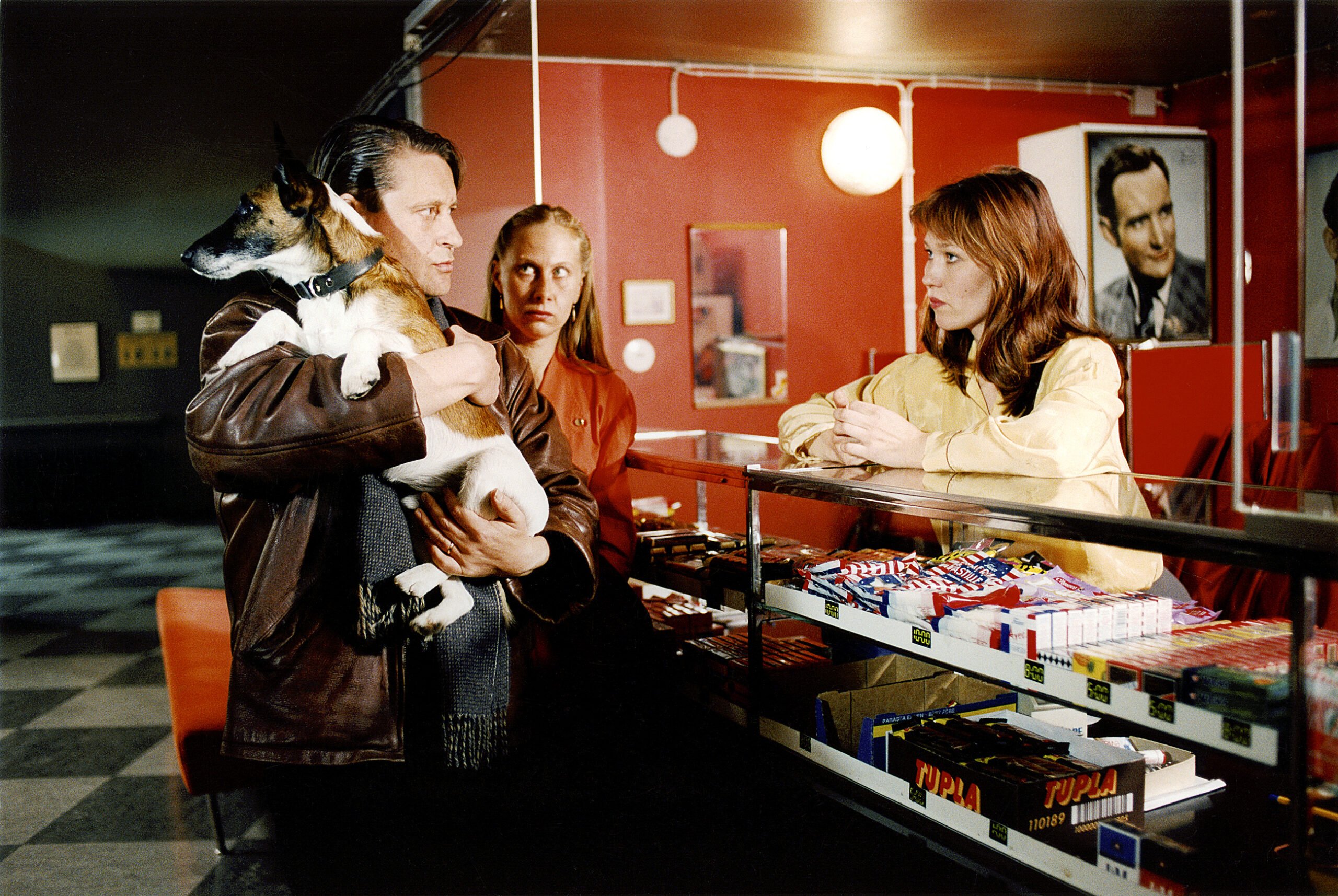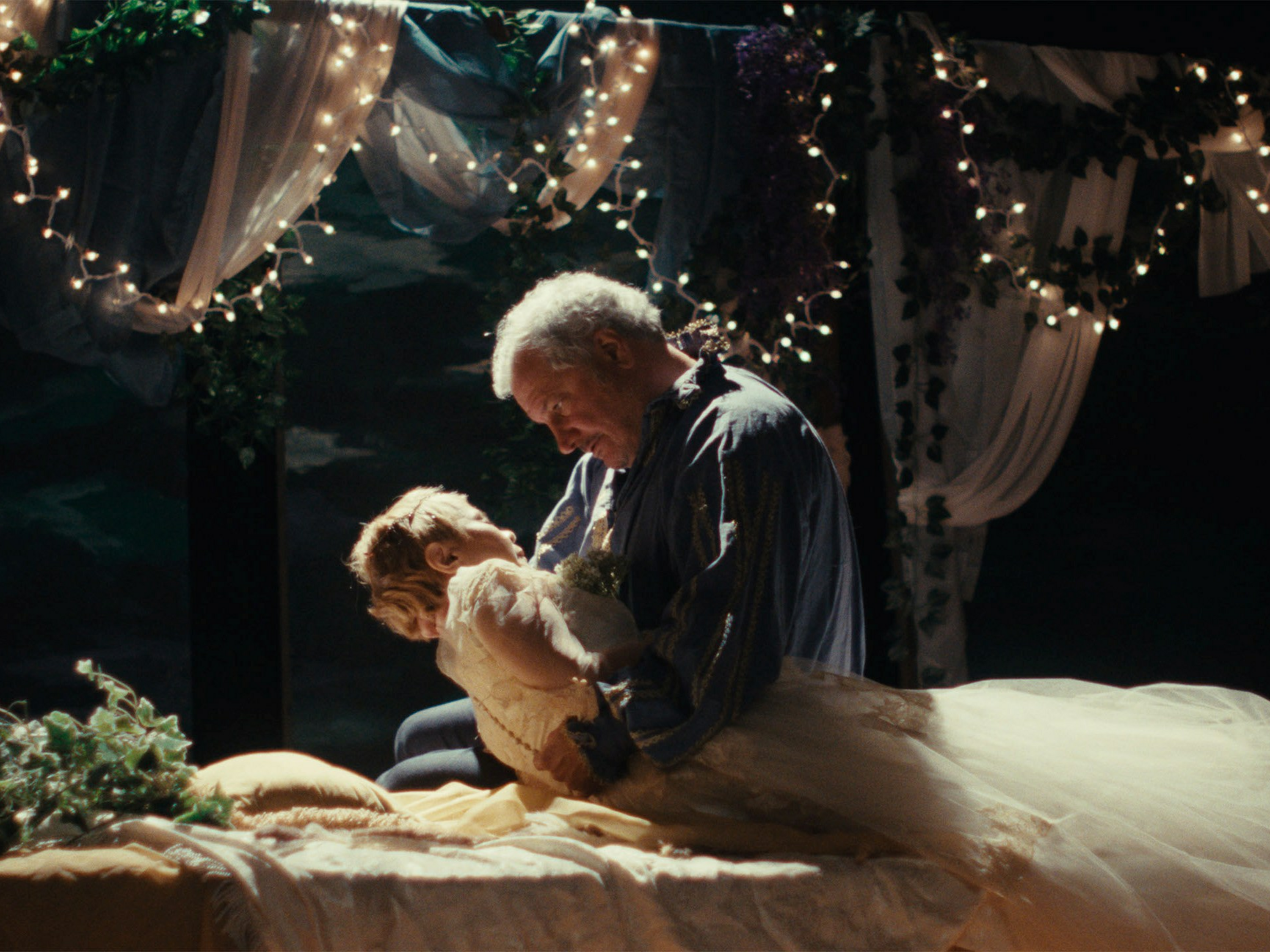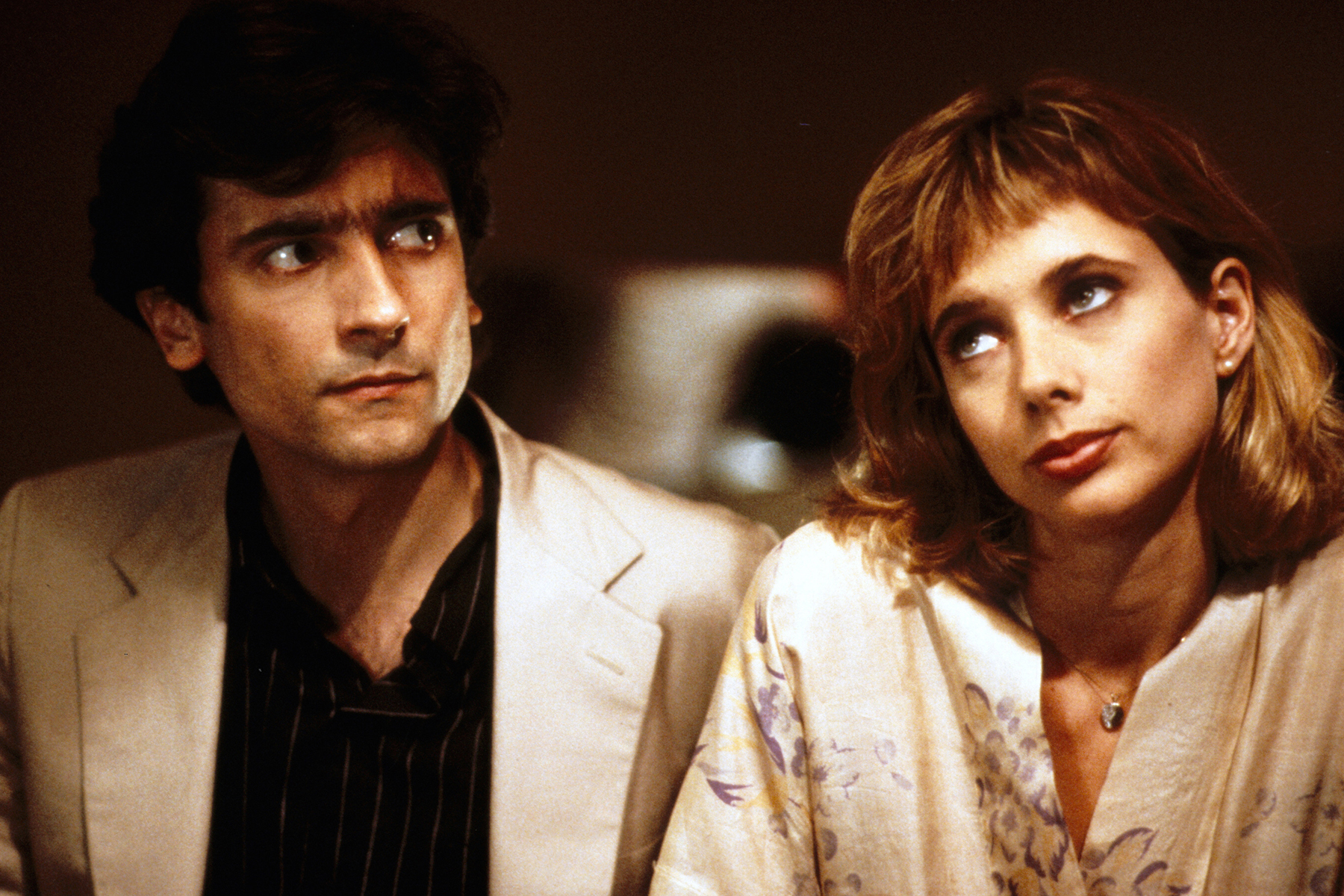
50 Best Comedy Movies on Netflix UK
March 17, 2025
Share:
Sometimes, all you need is a good laugh to get you going. But finding comedy gold isn’t as easy as it seems, especially in the age of streaming where you’d have to dig through hundreds of titles before finding a gem—and that’s exactly what we did in this list. To help you decide your next funny watch, we rummaged through multiple movies, from dark to slapstick to satirical comedies, and rounded up only the greatest in this list.
Here are the very best comedies to stream on Netflix UK right now.
Read also:
41. The Commitments (1991)
Genres
Director
Actors
Moods
The Commitments is the kind of film you show someone you like to test who they are. If they like it, they’re good people. If they don’t, they’re probably soulless. It’s very hard to find fault in The Commitments, a ‘90s Irish musical following a band of aimless young people hoping to escape their troubled realities one rehearsal and gig at a time. They may be penniless and uneducated, but when they take on the stage, these soul (not jazz!) performers will dazzle you to no end. The cast was chosen primarily for their musical chops and it shows—these kids can sing. And when they start, you wish they’d never stop. The lead singer, Deco (a 16-year-old Andrew Strong) is the most arresting out of them, but all 11 of them are very easy to like and follow, even through that difficult but suitable ending.
42. Memoir of a Snail (2024)
Genres
Director
Actors
Moods
The worst possible things that could happen, happen to orphaned twins Gracie and Gilbert but still they power on, motivated solely by the hope of being reunited once more. It’s a sweet premise, young siblings on opposite ends of the country encouraging one another with heartfelt letters. And with the soft-spoken Gracie (Snook) narrating the whole thing, it’s easy to be lulled into a sense of ease and comfort. But those familiar with director Adam Elliot’s work know that it’s never that simple. The film is as dark and edgy as it is sentimental and hopeful. It’s a complex piece of work, one that asks: is life worth living? After all the hardships, misfortune, depravity, and brutality, must we go on? You probably know what answer the movie will give you, but how it gets there is a heart-shattering journey that’s worth taking nonetheless.
43. Mary Is Happy, Mary Is Happy (2013)
Genres
Director
Actors
Moods
With a premise as insane as this—a high school coming-of-age film adapted from 410 consecutive tweets from a real, random Thai girl under the username @marylony—you would expect Mary Is Happy, Mary Is Happy to be some sort of incoherent commentary about social media. What director Nawapol Thamrongrattanarit gives us instead is a completely original and surprisingly affecting portrait of a young woman in her senior year trying to come to terms with the fact that her life may only ever be a mess of incongruous parts without a definite identity. It’s as whimsical as it is bittersweet, with the film flitting back and forth between the absurd and the melancholic.
Thamrongrattanarit structures his film as a series of loosely connected vignettes, with every single one of @marylony’s tweets appearing on screen. The effect is one-of-a-kind—as if we’re watching different layers of meaning constantly interacting with each other, our understanding of what we’re supposed to think of as serious or tongue-in-cheek always changing. And through the film’s deliberately lo-fi aesthetics, the experience of watching it is like flipping through a scrapbook of memories mundane and precious.
44. Truly, Madly, Deeply (1990)
Genres
Director
Actors
Moods
Don’t be fooled by its obvious parallels to Ghost (not a bad film, but a very different one): Truly, Madly, Deeply isn’t much concerned with the supernatural logistics of its back-from-the-dead-boyfriend premise, and it doesn’t feature any psychics or murders, either. In fact, there’s an argument to be made that everything that takes place here happens in its protagonist’s imagination — that’s how much it ignores the ‘how’ of it all.
Instead, this deeply warm rom-com from the great Anthony Minghella grapples head-on with the emotional challenges of grief and moving on. Juliet Stevenson’s performance as the bereft Nina is up there as one of the most moving portrayals of loss the screen has seen, and not just because of how believable her intense cry-acting is. When she realizes her deceased boyfriend Jamie (Alan Rickman, as seductive and sardonic as always) has returned to the land of the living, her euphoria brings to aching life the dream that everyone who’s ever lost a loved one must surely have dreamt: how joyous it would be to see them again. Blending such raw observations with wry humor — and anchored by two leads with genuine chemistry — this is a profoundly moving and rewarding movie.
45. The Player (1992)
Genres
Director
Actors
Moods
Like so many pictures about the pictures, The Player is a biting satire of the biz. Tim Robbins plays Griffin Mill, a Hollywood executive who gives dinner speeches about movies being art but works at a studio where endings are unceremoniously tweaked for maximum audience approval ratings — and therefore maximum profits. The greedy corporate Tinseltown of The Player feels very close to the franchise-pumping Tinseltown of today, but there’s enough wit and irony here to keep it from feeling too depressing.
Legendary New Hollywood director Robert Altman packages his critique in familiar clothing: that of a film noir. After receiving threatening postcards from a disgruntled writer he never called back, Griffin takes matters into his own hands and soon finds himself living out the plot of a taut thriller. The Player gets even more deliciously meta than this: nearly every scene contains a winking reference to the movies, and it’d probably be easier to count which stars of past and present don’t show up for a cameo here. What’s more, Altman gives The Player the kind of “happy ending” that Griffin’s studio is always demanding from writers — only here, it’s spun into a bitter commentary on the whole industry. Simply masterful.
46. After Hours (1985)
Genres
Director
Actors
Moods
Martin Scorsese had just spent a year prepping for The Last Temptation of Christ when Paramount Pictures unceremoniously pulled the plug on the movie just one month before production was due to start. After Hours was Scorsese’s way of exorcising all that disappointment and frustration, and you can feel it: this black comedy vibrates with manic intensity as it charts a night from hell in the life of Paul (Griffin Dunne), a somewhat scuzzy yuppie living in ‘80s New York City.
In keeping with its title — which suggests the movie is suspended in temporal limbo — After Hours feels like it takes place in some mythological hellscape, a demonic underworld in which everyone Paul meets has been sent forth with the express mission to make his life more miserable. Surreal coincidences pile up, deepening his paranoia and turning his simple goal of returning home into a labyrinthine quest for survival on the deserted, rain-soaked streets of SoHo. It’s the kind of celluloid nightmare that terrorizes and thrills you at the same time (a la the Safdie brothers’ best works, which draw inspiration from After Hours). Only a director of Scorsese’s caliber could turn profound professional disappointment into such a win as this.
47. Drifting Clouds (1996)
Genres
Director
Actors
Moods
An early gem from Finnish maestro Aki Kaurismäki, Drifting Clouds is a deceptively simple story. The aftermath of job losses for wife Ilona (Kati Outinen) and husband Lauri (Kari Väänänen) holds a series of misfortunes, all of them tests to their marital bond. But this is only the beginning: as with Kaurismäki’s endearing use of flat irony and detached performances by regular actors of his, things can only get worse before they get better. Humanism has always shined through the director’s films, and this first part of a “Finland” trilogy makes no exception to the rule: the fact that labor and closeness are the two main themes (and are equally important for one’s survival) already elevates the absurdist comedy to something way more caring, engaged, and ultimately, tender.
48. 24 Hour Party People (2002)
Genres
Director
Actors
Moods
Here’s a biopic that focuses on capturing the feel of the era it depicts, rather than all the facts — and is all the better for it. 24 Hour Party People takes the same punk approach to storytelling as its subjects did to music, playfully throwing off the dull constraints that often make based-on-a-true-story movies feel like uninspired celluloid translations of a Wikipedia page.
In the film’s opening scene, Steve Coogan’s Tony Wilson breaks the fourth wall to address us directly and semi-spoil the movie’s ending. But it doesn’t matter, because the ride is so fun: we’re taken on an immersive trip through the heyday of the Manchester music scene: the births of Joy Division, New Order, the Happy Mondays, and Wilson’s Factory Records label and legendary Hacienda nightclub, an incubator for acid house and rave culture. The era’s hedonism is brought to life by the movie’s frenetic editing, documentary-style cinematography, and strobe-heavy visuals. For all its onscreen anarchy, though, the movie remarkably never feels loose or self-indulgent. Its irreverence is grounded by the ironic filter of the meta filmmaking, which frequently breaks the fourth wall to draw attention to its own conceits. A refreshing rejection of biopic tropes, but also a thrilling transportation into and evocation of the Madchester era.
49. Saltburn (2023)
Genres
Director
Actors
Moods
Oscar-winner Emerald Fennell got a lot of free reign with her debut, Promising Young Woman, which was a slightly modest ordeal even with a lead of Carrey Mulligan’s calibre. But now, with her sophomore film, she go to have some fun. Assembling a devout cast of particularly skilled actors—Barry Keoghan, Jacob Elordi, Rosamund Pike, and Mulligan again—seems like an obvious decision, but the mix of them all is unlike anything we’ve seen before. A class satire, a psychological thriller, and a psychosexual drama, Saltburn is high class entertainment, with a snappy script, and many tricks up its sleeve. Brace yourselves for some bath-action, grave-action, and full-moon-menstrual-action and many other scenes you may have not ever pictured shown on the screen. Actually, it’s impossible to prepare for a film like this one, but being open certainly helps digest the shock and provocations that are there for you to behold.
50. Ghostlight (2024)
Genres
Director
Actors
Moods
“The healing power of art” sounds cheesy, but it’s a statement made beautiful and true in Ghostlight. It’s the sensitively told and wonderfully performed story of an ordinary man who, up until this point, doesn’t even know how Romeo and Juliet ends. That’s how detached he is from art. But when Rita (Dolly de Leon) pushes him into the arena, he surprises himself and his family by being receptive to it. It’s the only way he can get in touch with his feelings, which is vital since he’s gone through an unspeakable loss recently. What that loss is isn’t immediately revealed in the film, but the small details snowball and eventually pummel you to the ground with its sheer tragedy. You’re either grinning or crying watching this, there’s no in-between. But if there were, you’d probably be marveling at the trio at the heart of this film: the family played by a real-life family. Keith Kupferer, who plays Dan, Tara Mallen, who plays Sharon, and Katherine Mallen Kupferer, who plays their daughter Daisy, are all compelling and dazzling in their own ways.
Comments
Add a comment
Ready to cut the cord?
Here are the 12 cheapest Live TV streaming services for cord-cutting.
More lists
Lists on how to save money by cutting the cord.
Curated by humans, not algorithms.
© 2025 A Good Movie to Watch. Altona Studio, LLC, all rights reserved.
